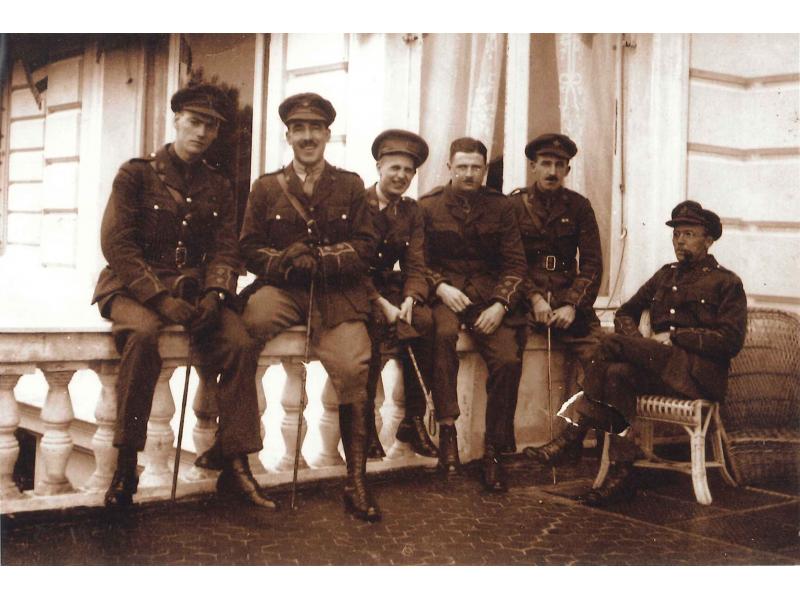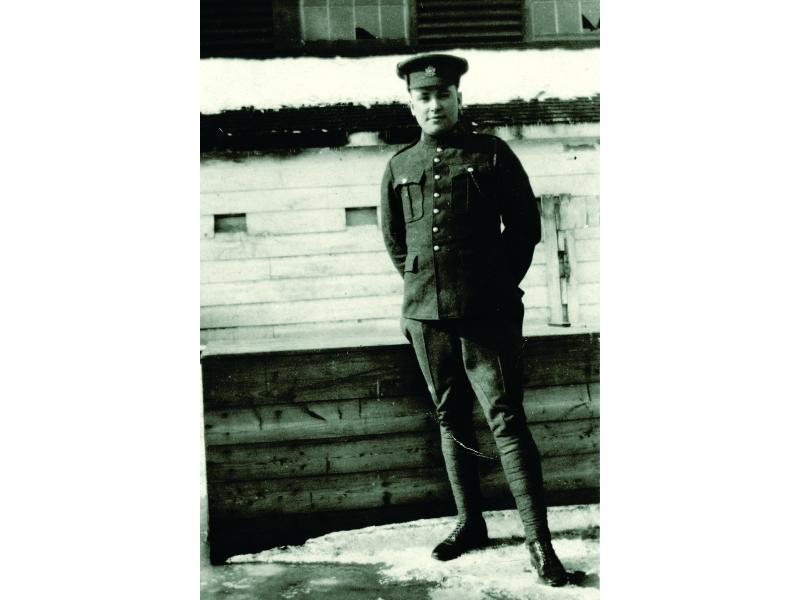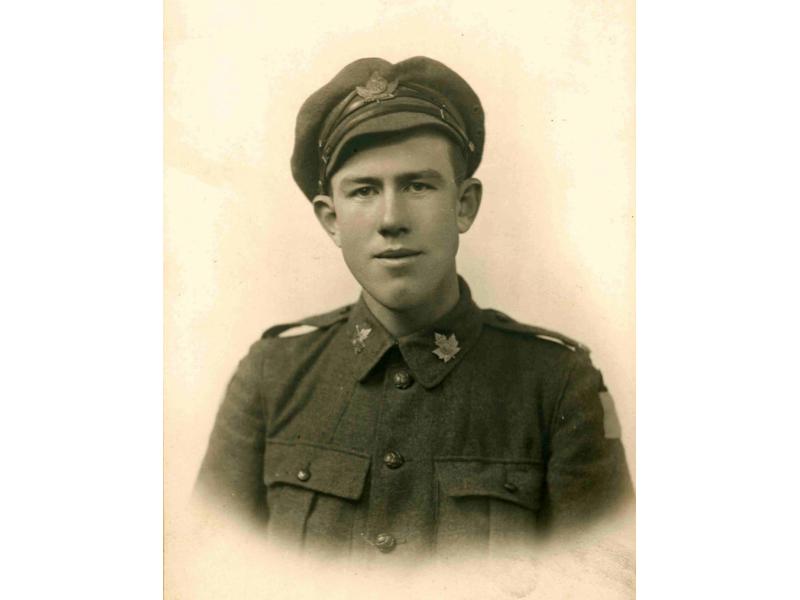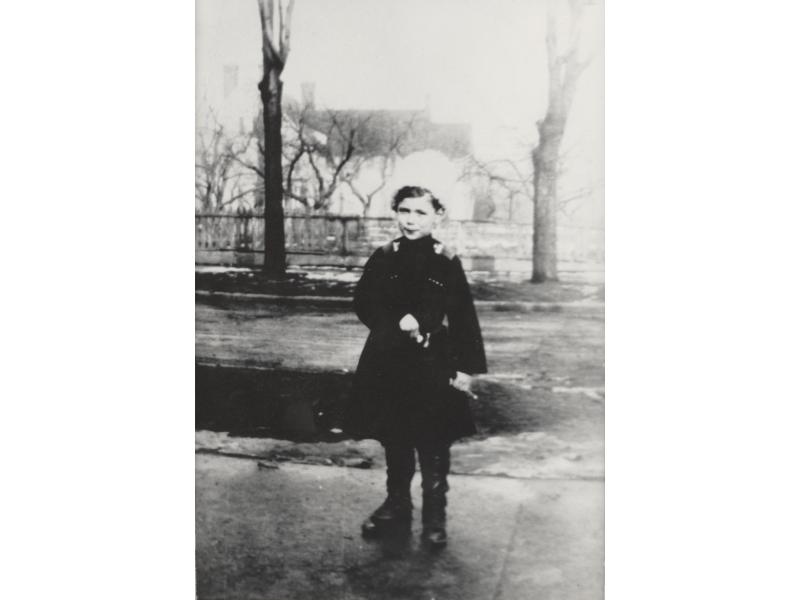An army might march on its stomach, but at the dawn of the First World War the Great Powers realized a new truth - a 20th Century army marched on oil.
While Lambton County was far from the battlefields of Europe, the Great War had a tremendous impact on the lives of many drillers - both domestic and international.
Background
Long before the assassination of Archduke Franz Ferdinand in 1914, the catalyst for the First World War, the Great Powers of Europe were busy attempting to gain control of the continent's oil reserves. By the end of the 19th Century, Great Britain had established itself as an industrialized world power, commanding an empire that stretched across the world. Having reached a plateau of industrialization, Britain's economy began to slow into a recession - by the 1880s this recession had expanded into a "great depression."
On the continent a newly unified Germany was busy following Britain's model of industrialization to rapidly advance in wealth and power. As Germany grew they began to look for colonies to provide them with desperately needed resources and trade routes. The nation looked towards the ailing Ottoman Empire (referred to as "the Sick Man of Europe" in this period due to its stagnant economy and under-developed military) as a new ally. With Germany possessing the industrial and military power and the Ottomans possessing the territory, raw resources, and man-power, if allied, nations had the potential to rival or even surpass the Great Powers of Britain and France.
As Britain's navy (the largest in the world) moved from coal to oil power, it became clear that every country that aspired to Great Power status required a steady supply of oil. Germany began building a railway that would provide the nation with a direct line to the oil-rich Suez Canal - further alarming Britain. If Germany was attempting to secure oil reserves, they must be building an army.
Meanwhile a British commission discovered oil in Mesopotamia (a region which now includes Iraq, Syria, and parts of Turkey) in 1908. In the years directly preceding the First World War, Britain began to aggressively pursue new oil interests. The Anglo-Persian Oil Company was created in 1909 and in 1913, at the behest of Winston Churchill, the British Government bought a controlling interest in the company. This interest allowed Britain to develop and secure oil reserves in Persia (modern day Iran) without attracting undue attention to their actions. A similar company called the Anglo-Turkish Petroleum Company was created in Mesopotamia in 1912 to secure British interests in that region as well.
With the outbreak of the First World War in 1914, Britain was still in the middle of moving its navy from coal to oil and the Ottoman Empire became an official ally of Germany, threatening Britain's oil interests in the Middle East. Britain moved its army into the Middle East, creating a new front in the Great War.
The victor in this new front would have access to vast oil reserves to fuel their war machine.
International Drillers
As the Great Powers of Europe moved armies like pawns on a chessboard - Lambton County drillers were caught (often literally) in the cross-fire.
Some men from Lambton County (like Frederick Saunders or W.H. MacGarvey) worked in the middle of battlefields, caught between opposing forces while other men (like Bloss Sutherland or Alfred E. Harper) enlisted to fight in the war itself.
International Driller Alfred Brownlee recalled the following story. At the outbreak of the war a number of International Drillers volunteered for active duty - one young man was told by a military authority:
"Quit your kidding and get back to your job. You're a lot more use to King and Country right where you are. Any driller who goes soldiering ought to be shot at sunrise."
While it may be tempting to think of the drillers who chose to not enlist as cowards, the quotation underlines just how critical the International Drillers were to the war effort. In fact, Arthur Lambert worked to build a pipeline in Persia (modern Iran) where crude oil was being transported to England to be used in the war. He stated, "I never served in the trenches with the boys but when I was putting through this pipeline, I was doing more than 1,000 rifles."
And life in the international fields could be just as threatening as fighting in the frontlines. W.H. MacGarvey was forced to watch as the oil empire he had built was destroyed as collateral damage. Robert Heal recounted in his memoir that Ottoman and British forces fought close enough to his oil fields that the sound of gunfire drowned out the machinery. Charles Wallen and his family had their fortune stripped by Russian rebels and were forced to trek through disputed territory for months in search of a way home. James Brown fled with his drilling crew to the Iranian mountains as German and Arab soldiers marched through British-owned oilfields.
The International Drillers of Lambton County were involved in nearly every aspect of the First World War and were impacted in many ways by its outbreak and development.








Add new comment